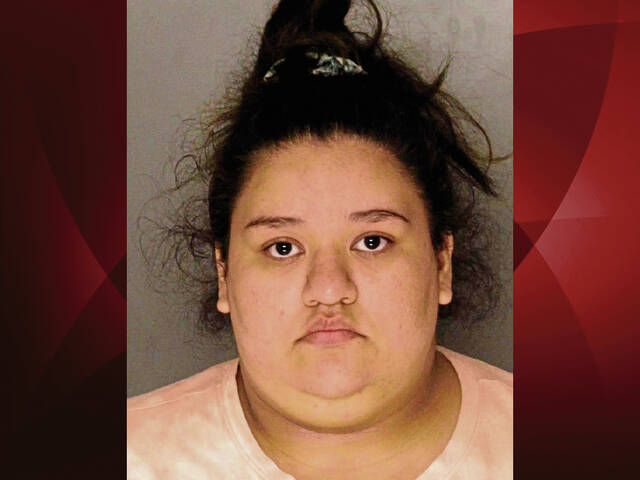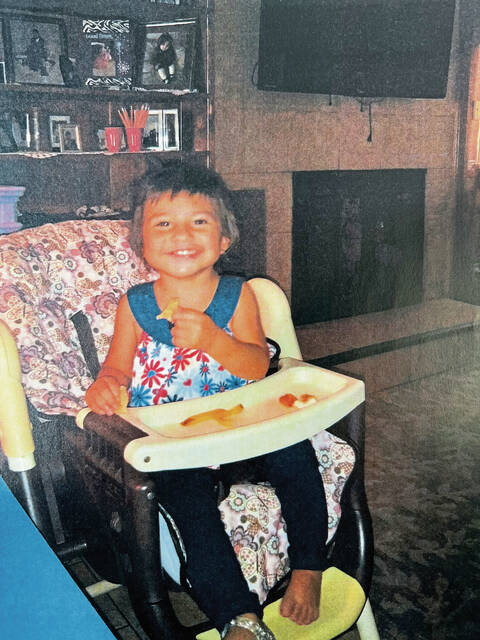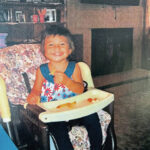Alexis Herrera clearly thought of the 3-year-old girl as less than human, the prosecutor said.
Herrera withheld food and water. She tied the girl up. She made her sit on the potty for hours. She struck her.
She let the other children in the house hurt the girl, too.
All of those actions, combined with Herrera’s inaction — she never called the police, child protective services or even a neighbor — are what led to Bella Seachrist’s death in 2020, Allegheny County Deputy District Attorney Jennifer DiGiovanni said.
“How much more deliberate and intentional is it to wake up every day and decide to participate in the abuse of a child?” DiGiovanni asked. “If you don’t want her to die, stop killing her.”
In May, Herrera, 25, pleaded guilty to a general count of criminal homicide.
It was left to prosecutors and Herrera’s attorney to persuade Allegheny County Common Pleas Judge Bruce Beemer of which specific charge she should be convicted: first-degree murder, third-degree murder or involuntary manslaughter.
DiGiovanni lobbied for first-degree murder, which requires premeditation and the specific intent to kill.
“There is no other conclusion than, at some point, she formed that specific intent to kill,” DiGiovanni told the judge.
But defense attorney Michael Machen said his client is guilty of involuntary manslaughter, the least severe charge.
“Should Alexis Herrera have done more?” he asked. “Sure, but she didn’t. Her actions were reckless and negligent.”
Another sister testifies
Bella died June 9, 2020, from malnutrition and dehydration.
She weighed just 20 pounds — the same as an average 1-year-old child.
Investigators charged Bella’s father, Jose Salazar-Ortiz Jr., her stepmother, Laura Ramriez, and Ramriez’s sister, Herrera, with criminal homicide.
Bella, who was born from an affair Salazar-Ortiz had, was targeted by her stepmother and abused for months, prosecutors said.
Beemer found Ramriez guilty of first-degree murder in July 2023, and she is serving a mandatory prison term of life without parole.
Salazar-Ortiz was convicted of third-degree murder by Beemer and ordered to serve 33 to 66 years in prison.
The prosecution put on its case against Herrera over three days in January before the judge recessed until this week.
On Monday, during the continuation of Herrera’s hearing, the defense called three witnesses.
They included then-17-year-old Ashanti Garcia, the sister of Herrera and Ramriez, who was staying at the Oakmont house when Bella died.
Once, Garcia said, Ramriez yelled at her and tried to choke her when she caught Garcia trying to give Bella M&Ms.
Garcia also testified she once tried to talk with Ramriez about her and Herrera taking Bella back to Charlotte, N.C., where their family lived. But Ramriez said no.
“‘She doesn’t deserve that life,’” Garcia quoted Ramriez as saying.
Garcia said Bella spent all day, every day on her potty seat, but, when Ramriez was out of the house, she testified, Herrera tried to be kind, giving Bella more toys and food.
“When Laura wasn’t around, she’d treat her like all the other kids,” Garcia said. “When Laura was around, Alexis felt like she couldn’t do much.”
An intent to kill?
A psychologist and psychiatrist testified they did not believe Herrera had the capacity to form the specific intent to kill.
Dr. Michael Crabtree, a psychologist, testified that Herrera, who reported being abused as a child, has an IQ of 77 and has borderline intellectual functioning.
He also said she scored in the lowest 1% on an adaptive behavioral assessment test — meaning Herrera has trouble applying information to real-world scenarios.
That, he continued, impedes her ability to act willfully and deliberately.
Crabtree noted on cross-examination, however, that all of his opinions were based solely on answers Herrera provided and not on any other independent source.
“You didn’t think it was necessary to see if you were being lied to by Ms. Herrera?” DiGiovanni asked.
“It’s always good to have more information,” Crabtree answered.
He said he was unaware Herrera had a driver’s license and regularly babysat three or more children at a time — including for long weekends by herself.
Dr. Sara West, a psychiatrist, said she diagnosed Herrera with post-traumatic stress disorder, major depressive disorder, anxiety disorder, borderline intellectual functioning and cannabis use disorder.
While she agreed none of those diagnoses individually would prohibit Herrera from being able to form the intent to kill, West said they would if taken all together.
The prosecution called Dr. Bruce Wright, a psychiatrist, who testified in rebuttal that he disagrees with the defense experts’ findings.
“She did not have a psychiatric disorder that prohibited her from carrying out deliberate acts,” Wright said.
He agreed with Herrera having a low to average intelligence but said she does not have an intellectual disability. She was able to function in everyday life and care for the children in the house.
“She had the capacity to carry out these acts just as, in my opinion, she had the capacity to form the specific intent to kill.”
Wright testified Herrera told him Ramriez forbade her from being kind to Bella and that she was afraid of her sister and feared she could be evicted.
Herrera also claimed to Wright that she only pretended to abuse Bella to appease her sister — like clapping her hands together to make it sound like she struck her — but she did not hurt her.
“‘I had to play a role to please her, to egg her on,’” the defendant told him.
Herrera didn’t call the police, she told Wright, because she feared what would happen to her nephews.
“‘I had no idea who to call here. I thought, if I did it, my sister wouldn’t love me,’” Herrera told Wright.
Changing story
During his closing argument, Machen told the court his client has accepted responsibility in the case since the first time he met her.
“It’s unequivocal, the acceptance of responsibility,” he said.
But DiGiovanni, in her closing, disagreed, noting Herrera’s story changed each time she spoke to a new person in the case — from the investigators to the mental health experts.
“What strikes me is, with each person she talks to, she removes herself more and more from active involvement in Bella’s death,” DiGiovanni said.
But the text messages between Herrera and her sister, the prosecutor continued, make it clear the defendant carried out deliberate, willful, intentional acts multiple times each day — including suggesting that Bella be tied up.
“This was a conspiracy,” DiGiovanni said. “They were consistently trying to one up each other, egg each other on, take it to the next level.”
Beemer is expected to issue his decision Friday.











